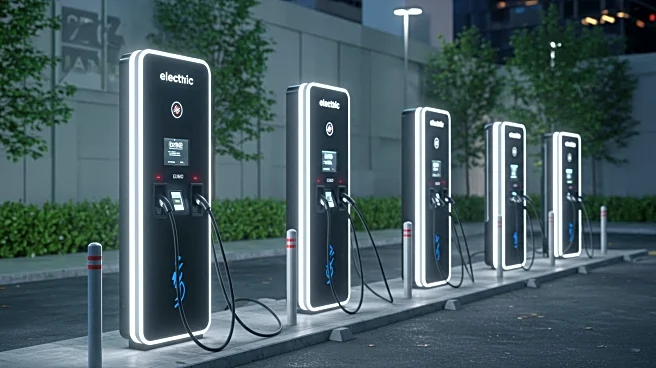What is the story about?
What's Happening?
The U.S. Department of Transportation (DOT) has reinstated the $5 billion National Electric Vehicle Infrastructure (NEVI) formula program, which was previously suspended in February for a review of its implementation policies and funding guidance. The NEVI program, part of the bipartisan infrastructure law passed in 2021, requires states to develop plans for EV charging infrastructure to access funds for installing charging stations. The revised guidance aims to reduce bureaucratic hurdles and provide states with greater flexibility in deploying EV infrastructure. The changes include simplifying the process for states to file plans and allowing them to determine the appropriate distance between charging stations along alternative fuel corridors. The guidance also minimizes requirements related to electric grid integration and renewable energy, while eliminating mandates for consumer protections and environmental considerations.
Why It's Important?
The revival of the NEVI program is significant for the expansion of electric vehicle infrastructure across the United States. By streamlining the process and providing states with more flexibility, the DOT aims to accelerate the deployment of EV charging stations, which is crucial for supporting the growing number of electric vehicles and reducing range anxiety among drivers. This move is expected to boost the EV market and contribute to the Biden administration's goal of having half of new car sales be electric by 2030. However, the Sierra Club has criticized the revised guidance, arguing that it adds unnecessary delays and fails to address key environmental and consumer protection issues.
What's Next?
States are required to submit their EV infrastructure plans within 30 days to access the NEVI funds. The DOT's revised guidance is expected to facilitate the rollout of EV charging stations, but ongoing legal challenges and criticisms from environmental groups may influence future adjustments to the program. Stakeholders, including EV advocates and state transportation departments, will likely continue to provide input to further refine the program and ensure its effectiveness in expanding the nation's EV charging network.
















